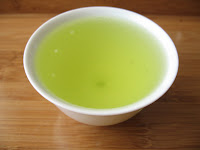For the aspiring tea lover there are a great many options as they explore the world of teas.
Water kettles:Standard issue item for any tea connoisseur is a water boiler of some kind. Most common from what I have seen are the
Zojirushi style water boilers
. These keep the water at a specified temperature, are well insulated, and keep it ready for use at almost all times. These are best for general use and for teas that are very temperature sensitive. Also very common are the
electric removable kettles. These are basically traditional tea kettles that have a base for warming with. These are best for teas steeped at boiling temperatures. These are very good for gongfu style brewing. There are many more types of water kettles out there, but these two are the most common and practial for the aspiring tea lover.
Specialized pots:As you advance in the world of tea, there are a few different kinds of tea brewing devices that are used. These go beyond the ingenuiTEA and other such all purpose devices. For Japanese teas a
Kyusu is important. These are used for almost all Japanese teas and quite easy to use. For most Chinese teas a
gaiwan is important. For most black teas such as Darjeelings a
western style teapot works quite well. Each of these teapots are still somewhat general purpose, but start to get more specialized. There are huge varities of each kind of pot, but easy to find one of.
Tea Gift Sets/Tea:Any tea lover enjoys receiving tea as a gift. One of my personal preferences would be for the
Sugimoto Gift set. These three teas were all exceptional and ranked some of the highest that I reviewed this year.
Seasonal teas are also a great gift due to their relation to the holiday season. And also there are other offerings that are only
seasonally available. Trying out a new tea is always a welcome experieince, but unless you know what kind of tea your recipient enjoys I would not suggest getting more than a small amount ~50g for them. That way they won't have a large amount of some tea that they may not enjoy sitting around. That's just a pile of guilt waiting to happen.
Tea Tools:Many aspiring tea lovers start getting the tools to help them brew teas. These include timers, scales, and thermometers. For a timer, any kitchen timer will work well. Scales should measure in grams accurate to .1g or .01g. Anything less accurate won't work well, and anything more accurate is going to be too expensive and have too small of a measurement range. Thermometers should have a good read speed and measure the range of temperature for water. Digital thermometers work well and will read in both C and F. With any of these tools though make sure they don't already have one. There is not much need for multiple of any of them.
Tea Books:There are quite a few tea books out there on the market, but there are not that many full of information. The best book that I have come across hands down is
The Story of Tea: A Cultural History and Drinking Guide
. This book is absolutely fantastic and filled with great information about tea from all over the world. The second best book that I have come across thus far is
Tea
. There are a number of amazing illustrations in this book, but not as much wonderful information as The Story of Tea.



















